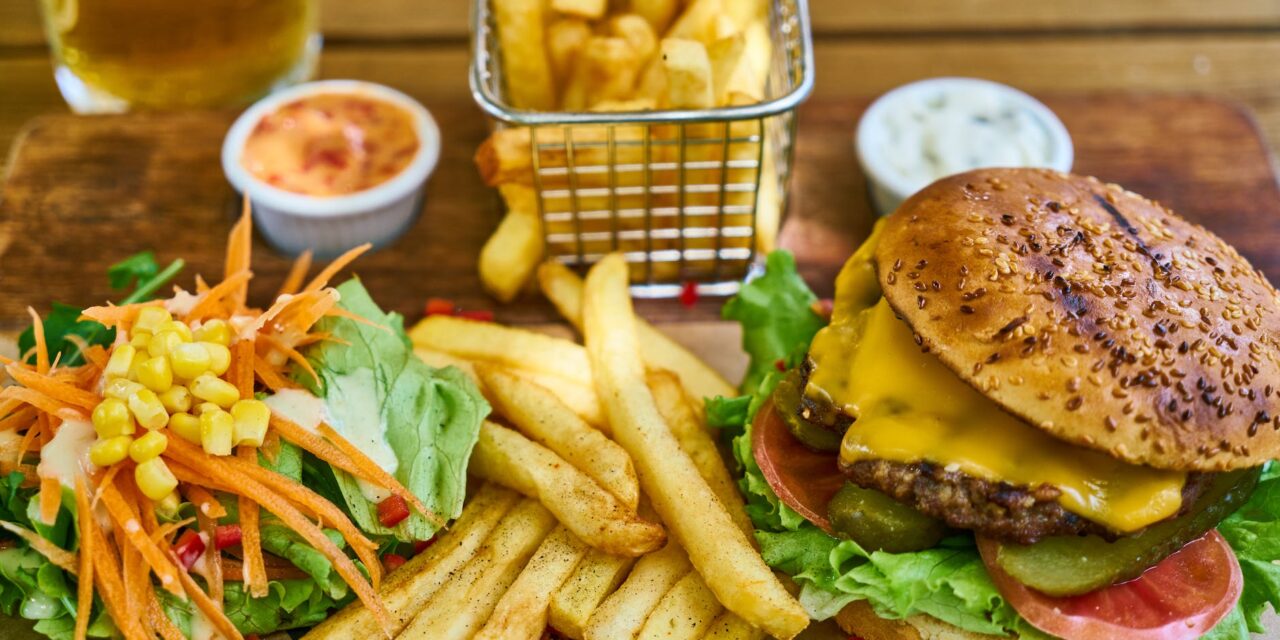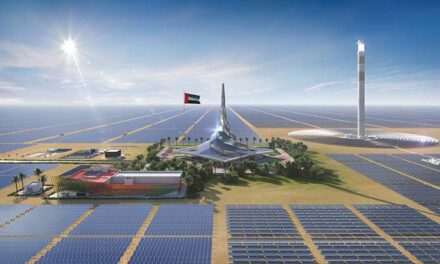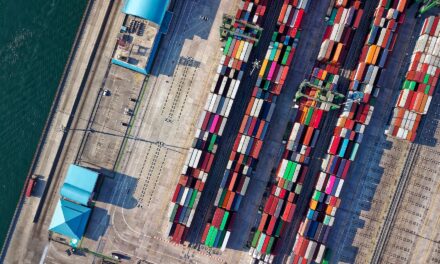Dubai’s diverse population and growing tourism industry make it a prime location for investment in the food and beverage industry. With over 200 nationalities residing in the city, Dubai offers a unique culinary experience that caters to all tastes and preferences. The city’s food scene is constantly evolving, with new restaurants, cafes, and food trucks popping up every month.
- Dubai’s Diverse Population and Food Culture
- Growing Tourism and Its Impact on F&B Industry
- Investment Opportunities in the F&B Sector
- Government Initiatives and Support
- Dubai’s F&B Market Overview
- Role of Hospitality and Retail in F&B Industry
- Impact of Major Events on F&B Industry
- Emerging Trends and Challenges
- Analysis of Dubai’s Gastronomy Industry
- The Role of Data and Technology in F&B Industry
- Dubai as an International Foodie Destination
- Frequently Asked Questions
- What are the current food trends in the UAE?
- What is the size of the FMCG market in the UAE?
- What is the size of the grocery market in the UAE?
- Why is the food and beverage industry important in the hospitality industry?
- Where does Dubai source its food imports from?
- What are the investment opportunities in the food and beverage industry in Dubai?
Moreover, Dubai’s tourism industry has been experiencing rapid growth in recent years, with millions of visitors flocking to the city annually. As a result, the demand for high-quality dining experiences has increased, presenting a lucrative opportunity for investors in the food and beverage industry. The city’s government has also been actively promoting the growth of the industry by launching initiatives such as the Dubai Food Festival and the Dubai Gastronomy Industry Report.
Investing in Dubai’s food and beverage industry offers numerous benefits, including access to a diverse and growing market, favorable business policies, and a supportive government. With the city’s reputation as a global hub for business and tourism, investors can expect high returns on their investments. As the city continues to grow and diversify, the food and beverage industry is poised for even greater success in the years to come.
Dubai’s Diverse Population and Food Culture
Dubai’s population of 3.5 million comprises a diverse mix of nationalities, with only 15% being Emirati. This diversity is reflected in the city’s food culture, which is a fusion of different cuisines and flavors from around the world. Dubai’s food scene is a reflection of the city’s cosmopolitan nature, and it continues to evolve as new cultures and nationalities make their way to the city.
Influence of Nationalities on Food Culture
Dubai’s food culture is heavily influenced by the nationalities that call the city home. Indian, Pakistani, and Bangladeshi cuisines are particularly popular, thanks to the large South Asian population in the city. Arabic cuisine is also prevalent, and visitors can enjoy traditional dishes like hummus, shawarma, and tabbouleh at local restaurants.
Other international cuisines that have a strong presence in Dubai include Chinese, Japanese, Thai, and Italian. These cuisines are popular with both locals and tourists, and many restaurants have adapted their menus to cater to different dietary requirements and preferences.
Health Awareness and Organic Food Trend
In recent years, there has been a growing trend towards health awareness and organic food in Dubai. With a focus on healthy living, many residents and visitors are opting for organic and locally sourced produce. This trend has led to the growth of organic food stores and markets in the city, offering a range of fresh and healthy options.
Dubai has also seen an increase in the number of vegan and vegetarian restaurants, catering to those who follow a plant-based diet. These restaurants offer a range of dishes that are both delicious and healthy, making them a popular choice for health-conscious individuals.
In conclusion, Dubai’s diverse population has created a food culture that is both rich and varied. With influences from around the world, the city’s food scene is constantly evolving, offering visitors and residents a unique culinary experience. The growing trend towards health awareness and organic food also presents opportunities for investment in the food and beverage industry.
Growing Tourism and Its Impact on F&B Industry
Dubai’s tourism industry has been growing rapidly in recent years, attracting millions of visitors from all over the world. According to the Dubai International Visitors Survey, the city welcomed 16.7 million international overnight visitors in 2019, up from 15.9 million in 2018. This growth has created a significant opportunity for investment in the food and beverage industry, as tourists are increasingly seeking unique culinary experiences during their travels.
One of the factors contributing to the growth of Dubai’s tourism industry is the city’s diverse population. Dubai is home to people from over 200 nationalities, which has resulted in a rich and varied food culture. This diversity has also led to the emergence of a vibrant street food scene, which has become a major draw for tourists looking to experience authentic local cuisine.
In addition to the city’s diverse population, Dubai’s status as a top tourist destination has also contributed to the growth of its food and beverage industry. Many of the city’s hotels and resorts offer a wide range of dining options, from high-end restaurants to casual cafes and bars. This has created a highly competitive market, with businesses constantly striving to offer unique and innovative dining experiences to attract customers.
The impact of tourism on Dubai’s food and beverage industry can also be seen in the city’s growing number of food festivals and events. These events provide a platform for local chefs and food businesses to showcase their products to a wider audience, while also attracting tourists who are interested in exploring the city’s culinary scene.
Overall, the growing tourism industry in Dubai presents a significant opportunity for investment in the food and beverage industry. With a diverse population and a reputation as a top tourist destination, the city is well-positioned to continue its growth as a culinary hotspot.
Investment Opportunities in the F&B Sector

Dubai’s diverse population and growing tourism industry create opportunities for investment in the food and beverage industry. The F&B sector in the UAE has expanded by 22% in the last five years, from $10.8 billion in 2013 to $13.2 billion in 2018, and the upward trend is expected to continue. The UAE government has also been making efforts to enhance food security and diversify food imports, which is another factor that makes investing in the F&B sector an attractive option.
Investors looking to invest in the F&B sector should start by conducting market research to identify opportunities in the market. They should also develop a business plan that outlines their goals, strategies, and financial projections. This will help them determine the feasibility of their investment and identify potential challenges and risks.
One of the major opportunities in the F&B sector is the growing demand for healthy and organic food. The UAE’s health-conscious population is looking for healthier food options, and investors who can cater to this demand can benefit greatly. Additionally, the growing tourism industry in Dubai provides opportunities for investors to tap into the food and beverage market.
Disposable income is also an important factor to consider when investing in the F&B sector. With a high per capita income, the UAE’s population has more disposable income to spend on food and dining experiences. Investors who can offer unique and high-quality dining experiences can attract a significant customer base.
In conclusion, the F&B sector in Dubai and the UAE presents a promising opportunity for investors. With a diverse population, a growing tourism industry, and a high disposable income, the market offers a range of opportunities. However, investors should conduct thorough research, develop a solid business plan, and be aware of potential challenges and risks before investing in the sector.
Government Initiatives and Support
The government of Dubai has taken several initiatives to support the food and beverage industry, which is a significant contributor to the economy. The Department of Economy and Tourism has played a crucial role in implementing policies and regulations that have helped the industry grow.
One of the initiatives introduced by the government is the Dubai Food Safety Program, which aims to ensure the safety and quality of food products in the market. The program includes regular inspections of food establishments, certification of food handlers, and the implementation of food safety standards. This program has helped improve the reputation of Dubai’s food industry and has increased consumer confidence in the products.
The government has also introduced several incentives to attract investors to the food and beverage industry. For instance, the Dubai Investment Development Agency (Dubai FDI) offers various services to investors, such as market intelligence, business setup support, and aftercare services. Additionally, the Department of Economic Development (DED) offers a range of services to support business setup, including issuing licenses, permits, and visas.
The government has also introduced several measures to support small and medium-sized enterprises (SMEs) in the food and beverage industry. For example, the Dubai SME Development Program offers a range of services to SMEs, including access to finance, training and development, and business incubation services. This program has helped SMEs in the food and beverage industry to grow and expand their operations.
Overall, the government of Dubai has implemented several initiatives and policies to support the food and beverage industry. These initiatives have helped improve the safety and quality of food products, attract investors to the industry, and support the growth of SMEs.
Dubai’s F&B Market Overview
Dubai’s diverse population and growing tourism industry create opportunities for investment in the food and beverage industry. The UAE’s F&B market is expected to reach $13.2 billion by 2021, with Dubai being one of the major contributors to this growth. According to Dubai Chamber of Commerce, the food and beverage trade in the UAE reached over $20 billion in the first nine months of 2021, with imports accounting for the largest share of the UAE’s F&B trade.
Dubai’s food and beverage market is highly competitive and diverse, with a wide range of international and local brands operating in the market. The market is segmented into various categories, including restaurants, cafes, fast-food chains, and food trucks. Dubai’s F&B market offers a diverse range of cuisines, including Arabic, Indian, Chinese, Japanese, Italian, French, and American.
The beverage market in Dubai is also growing rapidly, with a wide range of non-alcoholic and alcoholic drinks available in the market. The demand for healthy and organic drinks is also increasing in the market. The dairy sales in the UAE are expected to reach $3.6 billion by 2021, with a growing demand for dairy products such as milk, cheese, and yogurt.
Dubai’s GDP has been growing steadily over the years, with the city’s economy being driven by various sectors, including tourism, real estate, and trade. The food and beverage industry plays a significant role in Dubai’s economy, contributing to the city’s GDP. The industry is also a major employer in the city, providing job opportunities to thousands of people.
In conclusion, Dubai’s food and beverage market is a highly competitive and diverse market, with significant growth potential. The city’s growing population and tourism industry provide ample opportunities for investment in the industry. The market offers a wide range of cuisines and beverages, catering to the diverse population of the city.
Role of Hospitality and Retail in F&B Industry
Dubai’s diverse population and growing tourism industry create opportunities for investment in the food and beverage industry. The hospitality and retail sectors play a crucial role in the growth and development of the F&B industry in Dubai.
Hospitality establishments such as hotels, resorts, and restaurants are major consumers of food and beverage products. They require a constant supply of high-quality ingredients to cater to their guests’ needs. Therefore, the demand for F&B products is high in the hospitality sector, making it a significant contributor to the F&B industry’s growth.
Retailers also play a crucial role in the F&B industry. They are the primary source of food and beverage products for consumers in Dubai. The retail sector includes supermarkets, hypermarkets, and convenience stores, which offer a wide range of F&B products to consumers. Retailers also play an essential role in promoting F&B products by offering discounts, promotions, and other marketing strategies.
The service quality and location of hospitality and retail establishments are crucial factors that influence consumers’ decisions. Consumers are willing to pay a premium price for high-quality F&B products served in a comfortable and pleasant environment. Therefore, hospitality and retail establishments must maintain high levels of service quality and provide a unique experience to their customers to stay competitive in the F&B industry.
In conclusion, the hospitality and retail sectors play a significant role in the growth and development of the F&B industry in Dubai. They are major consumers and distributors of F&B products, and their service quality and location are crucial factors that influence consumers’ decisions. Therefore, investors in the F&B industry must consider the hospitality and retail sectors when looking for opportunities in Dubai.
Impact of Major Events on F&B Industry
Dubai is a hub for major events such as Expo 2020 and other gastronomic events that attract tourists and investors from all over the world. These events have a significant impact on the food and beverage industry in Dubai, creating opportunities for investment and growth.
Expo 2020, which was postponed to 2021 due to the COVID-19 pandemic, is expected to attract millions of visitors from around the world. The event will showcase the latest innovations and technologies from various industries, including the food and beverage industry. The expo will provide a platform for local and international F&B businesses to showcase their products and services to a global audience. This will create opportunities for investors to tap into the growing demand for F&B products and services in Dubai.
In addition to Expo 2020, Dubai hosts several gastronomic events throughout the year that showcase the city’s diverse culinary offerings. These events, such as the Dubai Food Festival and Taste of Dubai, attract food enthusiasts and industry professionals from around the world. They provide a platform for local and international F&B businesses to showcase their products and services, network with industry professionals, and explore new business opportunities. These events also contribute to the growth of the F&B industry by increasing consumer awareness and demand for new and innovative food products and services.
Dubai’s growing tourism industry also has a significant impact on the F&B industry. The city attracts millions of tourists every year, who come to experience its unique culture, attractions, and culinary offerings. This has created a high demand for F&B products and services, especially in the hospitality industry. Hotels, restaurants, and cafes are constantly expanding and upgrading their offerings to cater to the diverse needs and preferences of tourists. This has created opportunities for investors to tap into the growing demand for F&B products and services in the city’s hospitality industry.
Overall, major events such as Expo 2020 and gastronomic events, combined with Dubai’s diverse population and growing tourism industry, create opportunities for investment and growth in the F&B industry.
Emerging Trends and Challenges
Dubai’s diverse population and growing tourism industry create opportunities for investment in the food and beverage industry. However, there are also emerging trends and challenges that businesses need to be aware of to succeed in this competitive market.
Lifestyle and Organic Food
Dubai’s residents and tourists have a diverse range of lifestyles and dietary preferences. This has led to an increase in demand for organic, plant-based, and healthy food options. Businesses that can cater to these trends are likely to find success in the market.
Competition
Dubai’s food and beverage industry is highly competitive, with numerous restaurants, cafes, and food outlets vying for customers’ attention. Businesses need to differentiate themselves by offering unique products, services, or experiences to stand out from the competition.
Infrastructure
Dubai’s infrastructure, including its transportation and logistics systems, is well-developed and supports the food and beverage industry. However, businesses need to ensure that they have efficient supply chains, storage facilities, and distribution networks to ensure that their products reach customers in a timely and cost-effective manner.
Gulfood
Gulfood is the largest food and beverage trade show in the Middle East, attracting exhibitors and visitors from around the world. Businesses that participate in Gulfood can showcase their products, network with industry leaders, and stay up-to-date with emerging trends and technologies.
Free Zones
Dubai has several free zones that offer businesses tax exemptions, 100% foreign ownership, and other incentives. These free zones are ideal for businesses looking to establish a presence in the region and take advantage of Dubai’s strategic location and business-friendly policies.
In conclusion, Dubai’s food and beverage industry presents numerous opportunities for businesses that can navigate the emerging trends and challenges in the market. By understanding customer preferences, differentiating themselves from the competition, and leveraging Dubai’s infrastructure and business-friendly policies, businesses can succeed in this dynamic and growing market.
Analysis of Dubai’s Gastronomy Industry
Dubai’s diverse population and growing tourism industry have created a thriving food and beverage scene. According to the Dubai Gastronomy Industry Report, published in September 2022 by the Department of Economy and Tourism, Dubai has over 13,000 food and beverage outlets, with an estimated value of AED 40 billion. This report highlights the growing importance of food in Dubai’s tourism industry, with 52% of residents dining out up to three times a week.
The launch of Gault&Millau UAE, a renowned international restaurant guide, has further cemented Dubai’s position as a global culinary hub. This guide provides a platform for local restaurants to showcase their cuisine and receive international recognition. It also helps visitors to navigate the diverse food scene in Dubai, which offers a range of cuisines from around the world.
Dubai’s residents have diverse spending habits when it comes to food and beverage. While some prefer fine dining experiences, others opt for casual dining or street food. The Dubai Gastronomy Industry Report highlights that 45% of residents prefer to dine out with family and friends, while 27% prefer to dine out for special occasions.
Global sentiment towards Dubai’s food and beverage scene is positive, with the city being recognized as a top culinary destination. The inaugural Dubai Gastronomy Industry Report also highlights that Dubai’s vibrant and stimulating food scene is a direct reflection of the city itself, with the city being one of the most cosmopolitan in the world.
Investment opportunities in Dubai’s food and beverage industry are abundant, with the city’s growing population and tourism industry creating a high demand for new and innovative dining experiences. The Dubai Gastronomy Industry Report predicts that the food and beverage industry in Dubai will continue to grow, with an estimated value of AED 66 billion by 2025.
The Role of Data and Technology in F&B Industry
The food and beverage industry is a highly competitive sector that relies on innovation and technology to stay ahead of the curve. With Dubai’s diverse population and growing tourism industry, there are ample opportunities for investment in the food and beverage industry. Data and technology play a crucial role in the industry, enabling businesses to make informed decisions, optimize their operations, and improve customer experiences.
Leveraging Data
Data is a valuable asset for food and beverage businesses. By analyzing data from various sources, including online reviews, social media, and sales figures, businesses can gain insights into customer preferences and behavior. They can use this information to tailor their offerings, improve their marketing strategies, and create more personalized experiences for their customers.
Moreover, deep learning algorithms can help businesses identify emerging potential markets and opportunities for growth. By analyzing data from various sources, businesses can identify patterns and trends that may not be immediately apparent, enabling them to stay ahead of the competition.
Motivations and Barriers
The motivations for businesses to adopt data and technology in the food and beverage industry are clear. By leveraging data and technology, businesses can improve efficiency, reduce costs, and enhance customer experiences. However, there are also barriers to adoption, including the cost of implementing new technologies and the need for specialized skills and knowledge.
Despite these challenges, the benefits of adopting data and technology in the food and beverage industry are clear. By leveraging these tools, businesses can gain a competitive edge, improve their operations, and create more personalized experiences for their customers. As such, it is essential for businesses in the food and beverage industry to invest in data and technology to stay ahead of the curve.
Dubai as an International Foodie Destination
Dubai is emerging as a global culinary hub, attracting food enthusiasts from around the world. The city’s diverse population and growing tourism industry create opportunities for investment in the food and beverage industry. According to a survey of residents, over 55% of respondents ranked Dubai as the number one global gastronomy hub followed by London and New York.
Dubai has attracted a growing number of world-class chefs in recent years, putting the city at the forefront of fine dining. The city currently has 13,000 restaurants and cafes, offering a wide variety of cuisines to suit every taste. Some of the top-rated restaurants in Dubai include Torno Subito, from Italian superstar Massimo Bottura, and Zuma, which serves contemporary Japanese cuisine.
Dubai’s reputation as an international foodie destination is further enhanced by its hosting of various food festivals and events. The Dubai Food Festival is a month-long celebration of food, featuring various food-related activities, including cooking competitions, food tours, and celebrity chef appearances. The Taste of Dubai is another popular event that showcases the city’s diverse culinary offerings.
According to JLL, a leading real estate investment firm, Dubai’s food and beverage market is set to grow by 7.1% annually until 2022. This growth is driven by the city’s increasing population, growing tourism industry, and rising disposable income. The firm also notes that the demand for high-quality dining experiences is on the rise, creating opportunities for investors to tap into the city’s thriving food and beverage industry.
In conclusion, Dubai’s reputation as an international foodie destination is well-deserved, with its diverse population, world-class chefs, and fine dining options. The city’s food and beverage industry is poised for growth, making it an attractive destination for investors looking to capitalize on this lucrative market.
Frequently Asked Questions
What are the current food trends in the UAE?
The UAE is a melting pot of cultures and cuisines, making it a hub for food trends. Some of the current food trends in the UAE include vegan and plant-based options, healthy eating, and fusion cuisine. Additionally, there is a growing interest in locally sourced and sustainable ingredients.
What is the size of the FMCG market in the UAE?
The Fast-Moving Consumer Goods (FMCG) market in the UAE is estimated to be worth around AED 100 billion. The market is driven by the country’s growing population and high levels of disposable income.
What is the size of the grocery market in the UAE?
The grocery market in the UAE is expected to reach AED 70 billion by 2023. The market is dominated by large supermarket chains, but there is also a growing trend towards smaller, independent stores and online grocery shopping.
Why is the food and beverage industry important in the hospitality industry?
The food and beverage industry is a crucial component of the hospitality industry in Dubai. With the city’s growing tourism industry, there is a high demand for quality dining experiences. A strong food and beverage offering can set a hotel or restaurant apart from competitors and contribute to overall guest satisfaction.
Where does Dubai source its food imports from?
Dubai imports a large percentage of its food from countries such as India, Brazil, the United States, and Australia. The city also has a growing interest in locally sourced and sustainable ingredients.
What are the investment opportunities in the food and beverage industry in Dubai?
There are several investment opportunities in the food and beverage industry in Dubai, including restaurants, cafes, food trucks, and catering services. Additionally, there is a growing trend towards healthy and sustainable dining options, which presents opportunities for investors to capitalize on this market. The city’s diverse population and growing tourism industry make it a prime location for investment in the food and beverage industry.

























